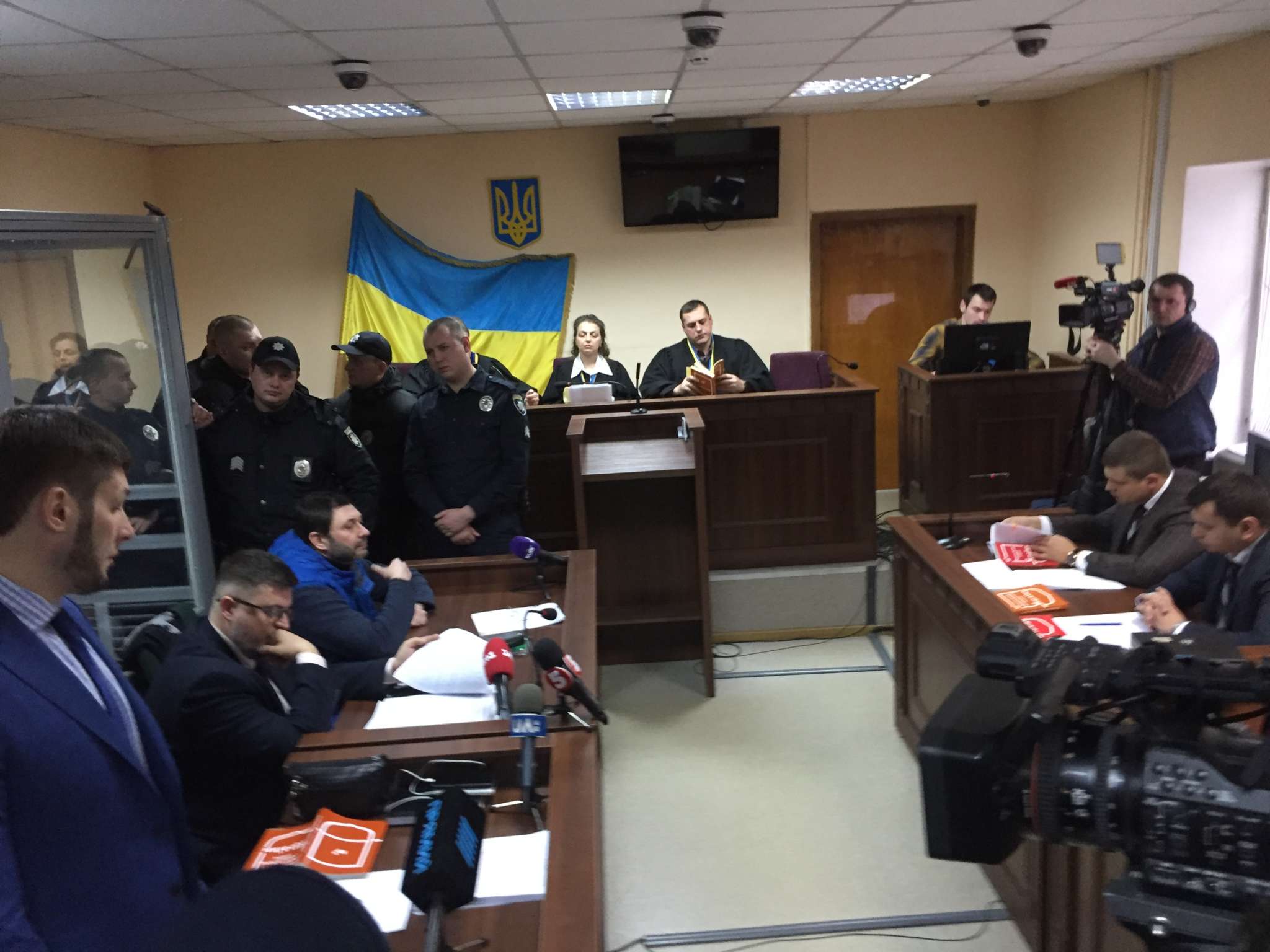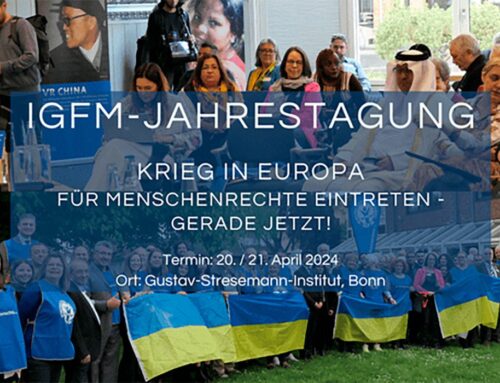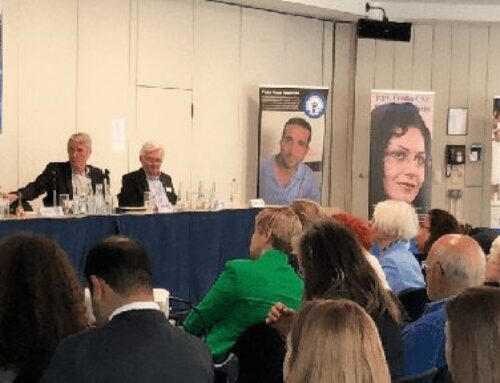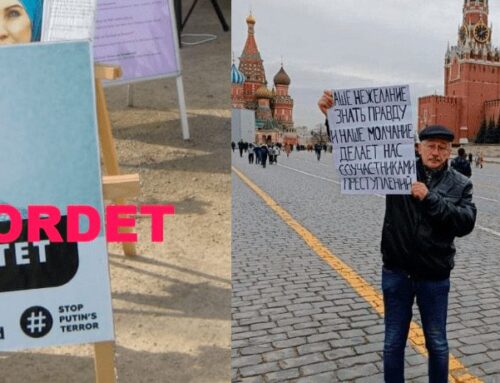Monitoring the trial of Kirill Vyshinsky (session 26.03.2019)

On March 26, a preparatory court session on the case of K. Vyshinsky, the editor-in-chief of “RIA News Ukraine”, was held in the Podolsky district court of Kiev. He is charged with treason. K.Vyshinsky was detained on May 15, 2018, in Kiev during a search of “RIA News Ukraine” employees. The law enforcement agencies of Ukraine claim that they have found an employment contract with a Russian media group “Russia Today”, as well as a large sum of money and a firearm. On May 15, K. Vyshinsky was transferred from Kiev to Kherson, and on May 17, the Kherson City Court applied a measure of restraint to the journalist in the form of detention. The International Society for Human Rights begins monitoring this trial.
At the beginning of the court hearing, the defense of a journalist filed a petition regarding the participation of one of the prosecutors in the trial. Lawyers argued that, according to the legislation of Ukraine, the prosecutor could not participate in the trial, since he entered into the proceedings only at the judicial stage without the grounds provided by law. The court did not satisfy the defense petition.
The prosecution filed a petition for the use of a measure of restraint in the form of detention, arguing that the journalist could influence the witnesses, to escape from the court, because K.Vyshynsky has an international passport and he said that he wants to renounce the citizenship of Ukraine and due to the “no alternative” measure of restraint for persons accused of treason. The European Court has repeatedly recognized a violation of Article 5 § 3 of the Convention in cases in which the national courts extended the applicant’s detention, referring mainly to the severity of the charge without taking into account the specific situation, and not considering alternative measures of restraint (“Idalov v. Russia”). It is worth noting that in a private conversation with the lawyers of the defendant, it turned out that prosecutors have been referring to the same risks for the past 9 months, and that is how much the journalist is in custody. The experts of the International Society for Human Rights have repeatedly noted that the prosecution systematically argues its petitions with initial risks (cases of Shchegolev, Ezhov, Mikhalchevsky, Mastikasheva, etc.), contrary to the well-established practice of the ECtHR, which suggests that, over time, the initial reasons for detention are less and less significant and that the courts should proceed from “substantial” and “sufficient” grounds for prolonged imprisonment (“Pelevin v. Russian Federation”).
When the court gave the floor to a lawyer so that they expressed their position regarding the petition of the prosecutor, the defense asked the court to hold a session within the framework of the procedural legislation of Ukraine (petitions for the measure of restraint are considered after they choose the date of the court hearing and consideration of other petitions). Based on this, the defense filed a petition for the return of the indictment to the prosecutors, as the prosecution provided evidence to the court and gave them its assessment, which directly violates the principles of competition, impartiality and the rule of the court. Note that the adversarial nature of the trial and the equality of arms are not mentioned in Article 6 of the Convention, however, they are an important element of a fair trial. The ECtHR has repeatedly in its decisions pointed to the need to respect the principle of competition (“Brandstätter v. Austria”, “Roe Davis v. the United Kingdom”). The court considered that the petition of lawyers was groundless and did not satisfy it. The petition of the prosecution was expectedly granted. In their decision, the judges indicated that the lawyers refused to state their position regarding the motion of the prosecution, even so, the refusal was not heard in the courtroom, but only a request to work according to the procedural legislation.
The lawyers expressed their suspicion about the judge’s bias and filed a motion to challenge the entire board, which was not satisfied by the court. According to lawyers, this case is purely political, the decision of the government officials in it prevails over the laws, one of the defenders suggested that the court’s decisions were written in advance.
The International Society for Human Rights will continue to monitor this trial.








Leave A Comment